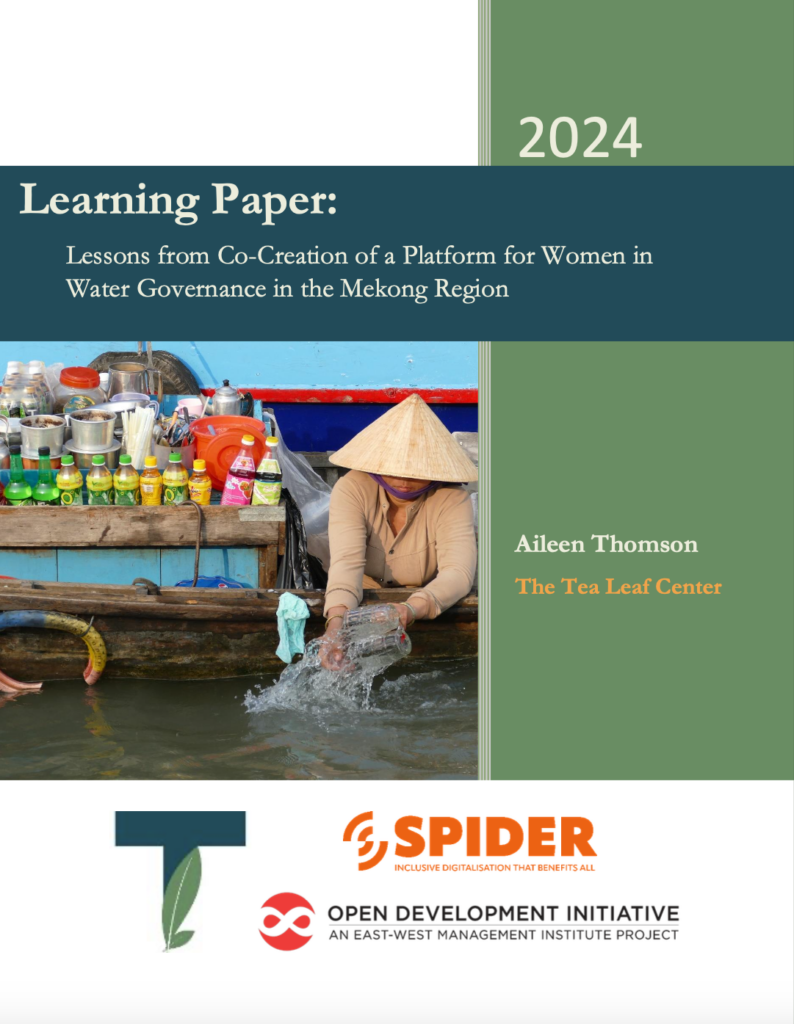Published in partnership with Open Development Mekong

All over the world, women play a critical role in providing, managing and safeguarding water resources. Yet too often, governments ignore women’s lives and perspectives when making decisions about water. Years of experience have shown us that dams and other water infrastructure impact communities in gendered ways.
Dam projects often exacerbate existing power imbalances between women and men. In many cases, women suffer the negative impacts of dam development disproportionately, facing gender-based violence, insufficient compensation, lost livelihoods, and a lack of access to information, decision-makers and justice systems.
Despite these challenges, women leaders worldwide are breaking these barriers to achieve environmental justice and a just energy transition.
Women in Water Governance Project in the Mekong Region
In February 2023, the 12-person all-female steering committee convened to begin the process of co-creating this safe space, with security safeguards, a robust governance structure, and initial wireframe ideas for the online space, backed up by technology infrastructure that establishes a baseline of no electricity, no hardware and connectivity, no literacy or digital literacy, with a minimum of start-up funds to build the necessary infrastructure. The project’s initial pilot region is the Lower Mekong Basin countries and Myanmar, but engages a gender-balanced Advisory Board that brings global perspectives and trans-disciplinary expertise.
These lessons are based on a one-year longitudinal research project that followed the Women in Water Goverenance Project (WIWGP) co-creation process through a mix of interviews, observation and surveys. This includes observation of online meetings and two in-person workshops (23-24 February and 12-21 September 2023), two rounds of interviews with Steering Committee members and other members of the project team, and post-workshop surveys after each workshop. Access the learning paper here
Watch the video:

